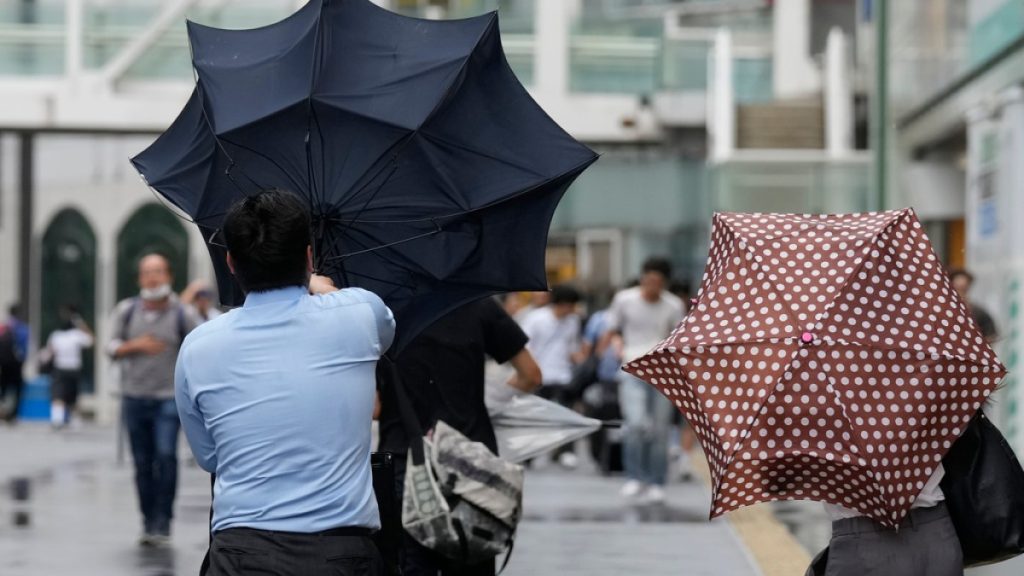Flights and trains in Tokyo area cancelled as weather agency warns people of strong winds and heavy rains.
Japan has ordered thousands of people to evacuate and cancelled dozens of flights as a “very strong” typhoon swerves dangerously close to the east of the country.
The Japan Meteorological Agency (JMA) on Friday estimated that Typhoon Ampil was situated 170km (105 miles) south of Choshi city in Chiba prefecture at 4pm (07:00 GMT), located near Tokyo in the eastern region of Kanto, public broadcaster NHK reported.
Currently barrelling over the Pacific Ocean, Ampil is expected to get close to the greater Tokyo region by later on Friday, with “fierce winds” liable to “cause injuries from flying debris or even overturn trucks in motion”, the JMA said.
The typhoon has wind speeds of 45 metres per second with maximum gusts of 60 metres per second (216kph/134mph), according to the agency.
Its approach has prompted a number of municipalities in Kanto and elsewhere to urge residents to evacuate.
Iwaki city in Fukushima prefecture, north of Toyko, issued an evacuation order for about 323,000 residents, according to the Reuters news agency.
About 18,500 residents were ordered to evacuate from Mobara city in Chiba, east of Tokyo. Dozens of other cities opened special evacuation centres and advised voluntary evacuation.
More than 2,500 households in the Kanto area were still experiencing blackouts in the afternoon, according to the Tokyo Electric Power Company.
Meanwhile, dozens of departing and arriving flights were cancelled at Tokyo’s two airports, Haneda and Narita, as well as at Kansai, Osaka and Chubu airports.
Airline group ANA Holdings, which owns Air Japan, said it will cancel 281 domestic flights and 54 international flights slated to leave or arrive on Friday, affecting nearly 70,000 passengers.
At Haneda airport, Japan’s biggest domestic hub, 32 incoming and outgoing flights will be cancelled on Saturday, disrupting travel plans for about 2,300 passengers
The Shinkansen bullet trains running between Tokyo and Nagoya were halted for the entire day, according to Central Japan Railway.
Bullet trains serving northeastern Japan and some local Tokyo trains were suspended temporarily or switched to a slower schedule.
Officials warned people to stay away from rivers and beaches and to be wary of winds strong enough to send objects flying.

